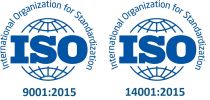
How is the Italian rental market?
The rental market in Italy is expensive and the selection of properties is limited. Although the crisis in recent years has helped to increase the availability of accommodations bringing rent prices down, or at least making landlords more inclined to negotiate, the property market still mainly revolves around buying and selling rather than renting. The amount of advertisements on the internet seems to contradict the claim that there is a lack of property up for rent on the market. The internet is an irreplaceable tool and it is undeniably useful for getting an idea of what is available. However, great care and expertise are needed in order to get by the property market in Italy, as it is a real jungle. The same property may be on the books of several agencies at the same time, so the number of advertisements in which it appears online will correspond to the number of agencies that are handling it. Furthermore, the advertisements are often inaccurate, not reflective of the real situation or simply out of date.
When is it advisable to conduct a valuable Home Finding?
It is advisable to begin “house hunting” 1 or at most 2 months before you plan to start the tenancy. If you go to visit a property that is already on the market too soon, you will have to start the rental contract early – and obviously pay the rent – even though you do not need the accommodation yet. On the other hand, if you leave it too late, there may not be enough time to go through all of the procedures that are required before signing a contract and making the necessary payments, especially if the Lessor is a company. While the landlord has the right to allow other interested parties to view accommodation once the tenants have given notice (3 or 6 months) of their intention to terminate the lease, Professional Relo does not recommend limiting the search to properties that are still occupied and due to be vacated, as it would mean further reductions to the already scarce selection of housing availability.
Furnished or Unfurnished?
The properties that are available to rent are unfurnished (vuoti), partially furnished (semi-arredati) or furnished (arredati). Unfurnished properties in Italy are really “bare”, with no kitchen units, no wardrobes and no light fittings. In recent years, it has become easier to find partially furnished properties on the market, especially in areas where there is a constant presence of a large number of expatriates. These properties have fitted kitchens, some light fittings and perhaps even some wardrobes. Finally, a furnished property obviously are completely furnished, but it will never be as well equipped as a “short-term” apartment. For example, it may not have goods such as kitchen cutlery, pots and pans, a dishwasher, a microwave, a television, DVD and CD players, a vacuum cleaner or an iron, although it may be possible to request some of these items during the negotiations in the lease proposal stage. Household linen such as sheets, tablecloths and towels are not normally provided as well.
How long does it take to move-in after a property has been chosen?
At least 4 weeks, to cover lease proposal and signing, lease negotiation and signing, payments (especially when the tenant is a company), check-in inventory and utility connection, provided that the property is already vacant, cleaned, painted and the kitchen installed.
What costs should Tenants anticipate to Tandlords in order to rent a property?
When the Lease is signed, the following payments are required:
• Rent in advance: 1 to 3 months, depending on the area (usually 3 months in Milan and Lombardy region).
• Condominium fees: 1 to 3 months, as above
• Deposit: 2 to 3 month rent is standard.
• Lease agreement registration: fee is 2% of the annual rent and it is equally shared between the Tenant and the Landlord. The registration fee is an annual charge, unless the owner has opted for the all-inclusive coupon tax system mentioned above (Cedolare Secca).
• Government stamps (Bolli): the Tenant has to pay 100% of the cost, which varies depending on the number of lines in the contract. 3 contracts are usually registered: 1 for the Lessor, 1 for the Lessee and 1 that stays at the Register Office. Again, these are not applicable in case of Cedolare Secca.
Do tenants pay any estate agency fee?
Yes they do. In Italy the estate agent’s fee is customarily paid by both the owner and the tenant, who are charged the same amount. The estate agent’s fee varies between 10% and 15% of the annual rent, although it may be as little as just one month’s rent in small provincial towns and as much as 2 months’ rent in Turin.
What is the standard term of for? an Italian lease?
The term of the “standard” lease agreement is four years renewable for four more years. This agreement is commonly referred to as “4+4” lease. The term of the “simplified lease agreement”, applicable under specific circumstances, is “3+2”.
What is the term of for the notice-to-leave?
The tenant can terminate the lease at any time as long as he gives 6 month notice and can provide “serious reasons” for doing so (for example, if they are relocating for work purposes). During negotiations, Professional Relo always asks to reduce the notice period from 6 months to 3 months and make termination of the lease possible for any reason whatsoever. Some owners accept this proposed change and others do not, thus depending on several factors.
What do condominium fees typically include?
Condominium fees are divided into ordinary and extraordinary fees. The ordinary fees include regular maintenance of communal parts of the building (stairs, terraces, lifts, entrances halls, intercoms, etc.), such as cleaning and lighting in the staircases and courtyards, gardening (if there is a garden), general repairs (pipes, wiring etc.), concierge, and condominium maintenance costs. Most of these fees are subdivided into thousands and charged in proportion with the size of each apartment. If a property is rented, the tenant is charged with ordinary fees while the owner pays the extraordinary ones, which cover work carried out on communal parts of the building on a one-off basis, such as renovation of the façade or repairing damage that affects the entire building. There normally are no condominium fees for a house, unless it and other properties share assets (such as a swimming pool or a tennis court) or services (such as maintenance of these assets or the garden). The condominium fees are outlay costs, so they cannot be included in the rent.
Are Tenants responsible for property wear and tear?
Yes they are. The Tenant shall be charged with the repairs as set out in art. 1576 (Preservation of the leased property in a good state) and in art. 1609 (Minor repairs charged to tenant) of the Italian Civil Code, as well as with any other ordinary expense relating to the facilities and services. If the Tenant does not promptly carry out the above-mentioned repairs, the Landlord may take care of it and the relating cost shall be reimbursed within 30 days from the repair, or it may be withdrawn from the guarantee deposit that shall be immediately supplemented by the Tenant.
Could pets reduce the possibility to rent a property?
Yes they could. Pets may be not always welcome and may reduce the number/type of properties available. Owners may not approve for various reasons, for example if the pet in question is a large dog or the accommodation is fully furnished.
What about safety deposit return?
At the start of the tenancy the lessee must pay a deposit known as a “Deposito Cauzionale”, as a guarantee that the rented property will be treated with due care and respect. This means that the property must be returned in the same good condition in which it was found at the start of the lease, without prejudice to wear and tear resulting from “normal” use by the tenants. In particular, if the property was delivered clean and/or freshly painted, it should be returned in the same condition. The deposit may not be used by the Tenant to pay the rent, additional expenses or any other charges and it must be returned at the end of the lease agreement following an inspection of the property’s condition, without prejudice to the requirement for the Tenant to comply with all of the contractual obligations.


